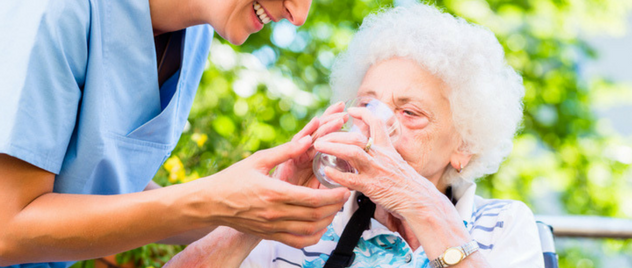Summer is just around the corner and it seems like the temperature intensifies with every passing year. Because seniors can be more susceptible to heat-related health risks than other age groups, it’s important that your loved one takes the proper precautions before they head out to the heat.
Below are some tips Freedom Home Care found to not only help protect your senior from the hot sun but to also avoid potentially hazardous risks as well.
Summer Health Tips:
Hydration is Key
When a person loses more water than they take in, dehydration can occur. This is common with seniors who take different medications or have a decreased sense of thirst or the inability to hold water. Try to drink fluids as often as possible and don’t forget to pack enough to last while you’re away.
Dress for the Weather
Older loved ones should dress in light-colored, loose-fitting clothing. Fabrics like cotton are cooler than synthetic materials. The fewer layers, the better.
Use Sunblock
Hats are a good idea especially for loved ones with lighter colored hair and using a sunscreen with an SPF of 30 or higher offers even more protection.
Wear Insect Repellent
According to doctors, older loved ones have a higher chance of contracting West Nile virus, especially those who live near water. Bug spray helps keep mosquitos at bay while protecting them from harmful viruses.
Find Cool Spots
When it’s hot outside or if there’s no air conditioning in the home, theaters, libraries, community centers and shopping malls are ideal places to go.
Take a Cool Shower
If your senior receives in-home care or personalized elder services and is some place where they don’t have access to air conditioning, experts say a cool bath or shower can be helpful in lowering body temperatures.
Wear Sunglasses
Because vision loss is a common condition among seniors, over exposure to the sun can worsen existing problems with sight. Sunglasses can offer much-needed protection from harmful rays.
Lower Your Risk of Hypothermia
When the body temperature rises above normal levels older loved ones can experience hypothermia. This includes heat stroke. Your senior should be able to recognize signs like a headache, nausea and vomiting, fainting, and dry flushed skin before it happens.
Exercise Properly
Most seniors like to do outdoor activities like gardening, walking, fishing and golfing, so wearing light, loose fitting clothing is essential during the summer months. Try to limit the amount of time spent outside in the heat, drink plenty of water and opt for activities that can be done in the early morning or evening.




